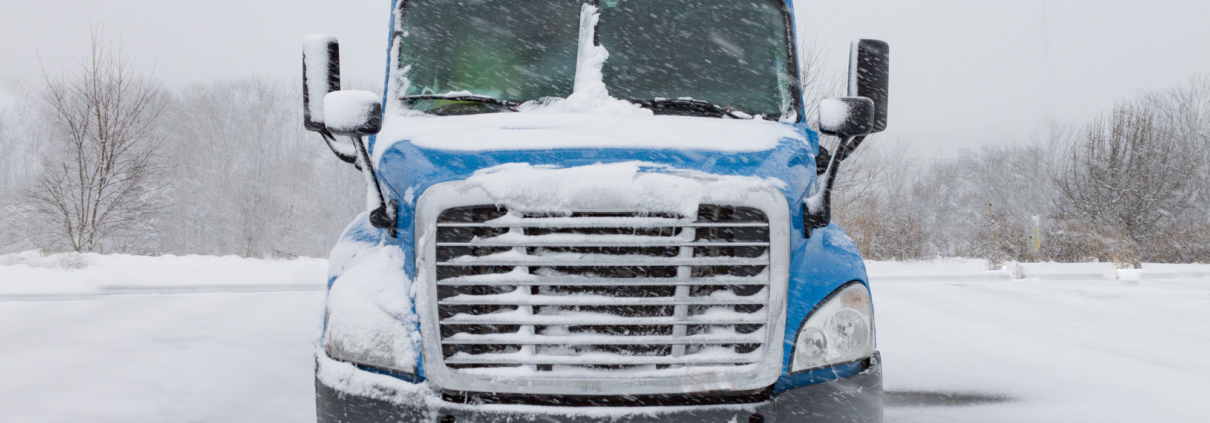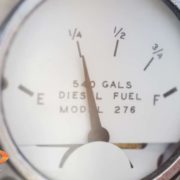Winter Diesel Engine Maintenance: Things You Should Not Miss!
Across the province and country, sub-zero temperatures make winter a potentially treacherous time for those who earn their living on the road. While winter trucking in Canada is never a walk in the park, knowing how to conquer the cold can keep your fleet going without interruption all season long.
Here’s how to prepare your diesel engines to keep the rigs road-ready and able to handle all the elements!
Proper Fuel & Filling
 In the winter, truck drivers should keep the fuel tank at least half full. When the tank is near empty in cold temperatures, condensation can build up and create fuel line freeze-ups and starting issues. As temperatures drop below -6°C (20°F), add a diesel fuel anti-gel additive to your fuel tank or use a quality winter blend fuel in the tank. A proper blend should prevent problems with your fuel filter, too (more on that below).
In the winter, truck drivers should keep the fuel tank at least half full. When the tank is near empty in cold temperatures, condensation can build up and create fuel line freeze-ups and starting issues. As temperatures drop below -6°C (20°F), add a diesel fuel anti-gel additive to your fuel tank or use a quality winter blend fuel in the tank. A proper blend should prevent problems with your fuel filter, too (more on that below).
Once a driver is driving in extreme temperatures, they should keep the truck running at highway speeds as much as possible, as opposed to idling. It allows the engine to reach the necessary temperature threshold for regeneration and diesel engine fluid cycling.
Test The Glow Plugs
If your truck’s engine has glow plugs, check them before temperatures go into the negatives. Glow plugs are an essential part of starting a semi in below-freezing weather, and defective ones can create problems such as diesel leaking into the exhaust pipe, starting issues, and decreased engine power. While the truck can still run if one of the plugs is defective, the engine could strain, leading to unexpected breakdowns.
Test The Block Heater
 Engine block heaters are devices used to warm the engine and fluids before starting a vehicle. In bitter cold temperatures, heaters reduce the risk of damage from idling and cold starts. If your truck has a block heater, always test it before the onset of winter. Take out your trusty multimeter and set it to ohms; if the results are between 9 and 25 ohms, the block heater is in good condition. If it measures lower than nine, this part has a problem.
Engine block heaters are devices used to warm the engine and fluids before starting a vehicle. In bitter cold temperatures, heaters reduce the risk of damage from idling and cold starts. If your truck has a block heater, always test it before the onset of winter. Take out your trusty multimeter and set it to ohms; if the results are between 9 and 25 ohms, the block heater is in good condition. If it measures lower than nine, this part has a problem.
Once winter hits, plug in the engine block heater every night, even when the temperature feels warm. It’s something that becomes only more essential if the truck is left to sit for a long time, as it can lead to a problem called cold soaks. Cold soaks occur when the temperature of fluids and steel of an engine block drops too low, impacting the starting and charging systems.
Replace The Fuel Filter
The high-performance diesel engines behind today’s semis are built for maximum efficiency, but they also have a low tolerance for fuel contamination. It can be a problem when temperatures drop, as the wax in diesel can start to bind in the cold, causing the fuel to gel. When it gels, the fuel can’t pass through the filter to the engine. Other side effects can include the truck jumping during acceleration or failing to start altogether!
Ensure that the filter is clean and unclogged before winter hits, and make a point of checking it throughout the season. Most diesel trucks need their fuel filters replaced every 100,000 kilometres anyway!











![[Patrick's mobile]-[car accident]](https://www.patricksmobile.ca/wp-content/uploads/2021/11/car-accident-e1638209647436-80x80.png)